By Reshat Kripa
Part Eighteen
– “People who have never known dictatorship and tyranny find it easy to give in to the rhetoric about freedom, forgetting the simple and terrible reality of willful oppression where it always exists”.
Giovani Sartori: “Once again for the theory of democracy”.
Memorie.al/ Robert Krasta, had made it a habit that on every anniversary of his parents, he would go to the cemetery and place a bunch of flowers on their grave. He would look at the picture stamped on the porcelain and start a conversation with them. He had been doing this habit for a long time. The conversation seemed to soothe his soul. He told them about everything that had happened in the family. Sometimes, when he found difficulty in something, he asked them for help, and it seemed to him that they answered him. Perhaps this could be some guess of his own, yet he believed it.
Continues from the previous issue
– What do I have, doctor? Tell me. Don’t hide anything from me. You know I have no one. That’s why I want to face him with my strength.
The doctor thought for a moment and then said:
-For now, there are only doubts. According to two tests, the signs are for leukemia. But it could be another reason. This will be revealed by the examination at the Oncology Hospital in Tirana.
The doctor completed the epicrisis and handed it to him.
– I wish you a speedy recovery. Do not worry. There are many cases like yours that end successfully.
Agron came out.
– How did they turn out? – the two of them asked in one voice.
– Tomorrow I will go to Tirana, for further examination, – he said.
Syrjau and Robert were stunned. They parted at the crossroads.
In the afternoon, Robert went to Agron’s house.
– How good of you to come, – he said – I was waiting for you. I needed to talk to someone.
He took two bottles of beer, put them in the dishwasher and turned on the tap to cool them.
– Why did you put them, you’ve never had a drink, – said Robert.
– Today I want to drink.
He took out cheese, salami and two eggs from the cupboard, which he boiled. Then he sat down next to his friend.
– Do you know what the doctor told me? He didn’t want to tell me, but I persisted, telling him that I’m alone. He finally told me the truth. The tests showed that I have leukemia. Tomorrow I will go to Tirana, to visit the Oncology Hospital.
The news was serious. Robert was stunned. He couldn’t find the words to say. The courage with which his friend spoke amazed him. Finally, as he collected himself from his first bewilderment, he said:
– Surely those from the laboratory were wrong. You will repeat them in Tirana and you will see that they will turn out well.
– No, they are not wrong. I feel that I will soon leave this world.
He took the eggs off the heat, peeled them and placed them on the table along with the salami and cheese. Then he took the bottles of beer, filled the glasses and spoke:
– Cheers!
– Cheers and good news!
– We have known each other for two years. You told me everything that happened to you and your family, but I kept silent. I kept everything inside myself. I have decided to take my secret with me into that world. I have no family relatives. My only brother stays away from me. He is afraid of my biography. You are my best friend.
Robert had been waiting for his friend to break the silence. But he thought that that day was not the right time, so he said:
– We have time to talk about those things. We will leave it when you return from Tirana. You will see that you will soon recover.
– No, they are not wrong.
– To know stronger!
– Do I look weak?!
– Let’s leave this conversation to the probe. We will continue when you return from the capital.
– Do you say I will return? – He said with a bitter smile, and then continued – I read Izajah Berlin’s book “Philosophical Ideas of the Twentieth Century”. In one place he writes:
“I want to be somebody and not anybody.”
That’s how I wanted to be. But this regime we live in doesn’t allow you to be someone. He wants all citizens to be nobody. This happened to us too. We were three friends. We had finished higher education in Electrical Engineering. We thought we were intellectuals. We thought we had personality.
But reality caused these illusions to fall. Before us stood two alternatives: Either to preserve our personality, or to turn into lackeys and enjoy the fruits of our servility. We chose the first one. We wanted to keep our dignity intact. And that’s what we dreamed about. It seemed to us that we were flying in the sky, but on the ground things were different. On earth it was forbidden to even dream.
Agron was silent. He raised his glass of beer, drank it with his friend and continued:
– That’s how we all ended up in prison. But the death of my best friend weighed heavily on my conscience. I spent eleven years with this worry. I hoped my friends would forgive me for that forced digression. But that didn’t happen. They still don’t forgive me. By chance, I learned that Gjergji was released from prison a few days ago. I don’t know, he’s crazy. I’m afraid it will be with the opinion of others. The only one who forgave me was Gazmendi. I went to meet him at the Sanatorium. He was in serious condition. Why did I want to wait until the end of my life to forgive someone?
He raised his glass of beer again and drank it all. He glanced around the room as if without attention. Robert understood his friend’s pain, so he said:
– Surely one day Gjergji and Yllin will forgive you.
– Do you say? Will they have time to do so?
– Why?
– Because I have numbered my days.
– I didn’t believe you were so pessimistic!
– It is not pessimism. It is reality. I feel it.
– Lies.
– This is my story. People should not forget the path that the citizens of this sinful country have gone through. Now, all I have to do is get ready to go to my loved ones.
The next morning, Robert found himself at Agroni’s.
– I will accompany you to Tirana, – he said.
Agron begged him to stay, but he insisted and the two set off. The doctors of the Oncology Hospital, when they read the epicrisis, decided to put him to bed immediately. In the hospital, they would have the opportunity to do the necessary tests better. Agron was laid.
– Inform Skenderi, – he told Robert.
He immediately went to the post office. It didn’t take long and Skenderi came. He was quite shocked. The announcement had fallen on him like a bombshell. He could not believe that his brother was suffering from such an illness. When he met her, he started to cry. Consciousness took over.
– Brother, I’m sorry! I was weak. I know you have the right to treat me however you want. I deserve it all. I deserve your scorn too.
– Stand up Skender! Men don’t cry. The brother’s heart is so big that he can forgive even what seems impossible.
Robert interjected, changing the subject of the conversation. He thought that was the most reasonable thing at the time. He started talking about the heat, which indicated that summer was starting, about the beach they would go to after Agroni got out of the hospital, and other such conversations. Such a thing was successful. The three of them started talking, as if nothing had happened.
The next day he did all the tests. He would get the answer a day later. Skenderi and Roberti went and took the head of the pavilion to drink a coffee and talk.
– Leukemia, – he said – he has it in a slightly developed stage. We will start chemotherapy immediately, with cobalt rays. You brought it a little late.
– Is there any hope?
– Just a miracle.
– The sun appears in the morning. When I don’t warm you up at first, don’t wait for later, – said Skenderi and left thoughtfully.
– What did he mean by those words? – the doctor asked Robert when they were alone.
– He is the brother. My heart aches for him, because that’s how he got his fate.
– I mean…?!
– Agroni is an electrical engineer. It’s over in Bulgaria. But fate struck him badly. He spent ten years in prison for political reasons. During this time, his fifteen-year-old daughter and wife died. Two years ago, my mother too. He remained alone. His brother was far away. I was the only one accompanying him. It was strong though. He never gave himself up. He is a man of unprecedented courage. Why does fate punish him to this point?
The doctor was surprised by Robert’s words. How dare he tell them about such things, which others hide? He probably wanted to get rid of the duff that he had inside. But the doctor was a correct and honest man. Agron’s story touched him deeply.
– We will do our best to save him. Yes, he will be lucky. I assure you that, from our side, all efforts will be made.
– Thank you doctor!
Robert went to the post office and got his department on the phone. Fortunately, Astriti was in the office. He explained Agron’s condition and told him to give him the usual permission, that he could not leave Agron alone in those conditions. He ordered him to inform his family as well, so that they would not worry. He spent the whole day next to his friend. He would only go out to eat a bite of bread and come back again.
He was so attached to her that the separation seemed to him the greatest loss. His friend, with iron intellect and logic, had devoured him. It had become synonymous with wit, wisdom and nobility. In Robert’s mind, Agron had become a symbol.
Skenderi tried several times to take Robert to his house to rest, but he refused. He spent the night with his friend. In the morning, he went to sleep at the house of a fellow inmate, who lived alone in a room in a suburb of the capital. He had spent twenty years in prison and when he got out, he was almost sixty years old. Thus he remained unmarried.
Agron’s condition was getting worse and worse. Despite all the rays he was doing, he felt no improvement. One day, blood burst from his nose. Robert alerted the doctor. He immediately came and visited her.
– You must prepare, – he said – This is the end. Today or many tomorrow.
Robert pulled himself aside, went into a corner and began to cry silently. It was the first time in his life that he shed tears. It seemed as if something would be torn from his heart. Skenderi found him in this state. They both went. When Agron saw them, his face brightened. With a voice that barely came from the bottom of his soul, he said:
– I don’t want… to cry… man… a lot of tears… have been shed… in our family… let them enjoy… life… your children…!
He hit the gas and lost again. Robert couldn’t take it anymore. He went outside and was walking in the flower garden of the hospital. There he met Syrjau and Besim. They had just got off the train. They had deliberately set out to see Agron. To Robert, a man smoking a cigarette, sitting on a bench…! It looked like a familiar face.
– Where have I seen this face? – he began to think to himself.
He began to rack his brain to remember, but in vain. It was a face he had seen years ago, but didn’t remember. He approached him and asked:
– I’m sorry for asking you, what’s your name?
The man looked at her intently.
– George Pano – answered.
A ray of light shot through Robert’s brain. It was exactly him, Gjergji Panua, Agron’s friend, who had been released from prison only a short time ago.
– George, do you have the strength to forgive a person? – said Robert.
– I do not understand. What do you mean by those words?
– Here in the hospital is a man in the last moments of life. He has committed a sin. But the circumstances in which he did it, only he knows. It’s a former friend of yours.
– Who is he?
– Agron Canaj.
George stood up.
– Agriculture? Why is he sick?
– Leukemia, in the last stage.
I thought about it for a while. Syrjau, Besimi and Roberti were waiting for his answer. Finally George spoke:
– Now Ylli will also come. He went to see a cousin of his who is bedridden. Let him come and we all go.
After a while, Ylli arrived. George told him his decision. He thought for a while, and then decided:
– Let’s go.
When they got there, Agron was in a half brace. Syrjau bent over him and spoke:
– How are you, son?
– At the threshold… of the last… of life…!
– And the doctor said that, you are on the way to improvement, – Besimi wanted to keep it with courage
– E..what is…death…? Antithesis…of…life…!
– Agron, – said Roberti – Gjergji and Ylli have come.
The effect was immediate. He opened his eyes wider, saw them, smiled and held out his hand. He wanted to speak, but he couldn’t make a sound. George took his hand, shook it and said:
– Agron, I came with Ylli.
– Don’t… am I… in… a… dream…?!
– No, – answered Ylli. – We are your friends.
– Do you…excuse me…?!
– Friends have nothing to forgive each other, – said Gjergji.
Thank you…! Ro…bert…to…lu…tem…take…me…your…jack…! In…Xe…pin…e…inside…it… is… a… let…all… Let..xo..you…! Raise..men…!
George and Ylli tried to lift him up.
– Lam…tu…mi…re da shur friends! – he whispered in a hoarse voice and collapsed lifelessly on the bed.
– Have a good trip, my friend – said Gjergji, closing his eyes.
– Goodbye brother! – Ylli whispered.
Skender pulled aside and began to cry softly. Faith stood in silence. Robert began to read the letter. When he finished, he took out the match and set it on fire. She threw her ashes in the trash can.
– What did he write? – asked Syrjau.
– Don’t ask me. Better not learn it. It is the tragedy of a great man. It cannot be imagined by any sane mind. Let him take it with him.
– Then don’t ask him any longer, – Syrjau sealed the conversation.
His body was taken home in a hearse. That evening he woke up there. Next to him were Skenderi, Roberti, Gjergji, Syrjau, Besimi, Astriti and all the comrades of the brigade. The next day, others came. Some of them did not speak to him as long as he was alive. Death had brought them together. They buried him next to his mother. They also placed the remains of his wife and daughter in the grave.
Robert continued to stand over his friend’s grave. Five years had passed since the day the friend had closed his eyes. During these years, great changes had taken place. The wind of freedom had begun to blow in our country as well. A new life was beginning in the homeland. But Robert was not enjoying this change.
He remembered with pain the friend who did not get to live this day. That tomb seemed to him like a tombstone of the cruel pain caused by the overthrown regime, but it also seemed to him like a hymn that called him to look forward, without forgetting the past.
– Agron, – he was talking to his friend, – the sun rose again. Now we have become someone again, just as you dreamed.
He felt a hand on his shoulder. He raised his head and saw Skenderi with tearful eyes.
– Skender, did you come?
– Yes, my friend, I came.
They hugged each other.
– When did you build it?
– Two months ago, on the fifth anniversary of his death.
– It makes me happy. Good luck!
– I felt it was a duty. What I could not give him while he was alive, I thought of doing after his death. With this action, I wanted to ease my conscience. Changing the system made me human again. Until then I was a reptile, who dared not express any thought, a man without personality, although I was intellectual and enjoyed a relatively high office. This “prominent intellectual” abandoned his brother when he needed him more than at any other time. He also abandoned his mother, the one who had made his head. I had become a worm, at a time when my brother was a worm.
– Why did you hurt your father’s bones?
– They are not the National Cemetery. It is the graveyard of the party, upside down. As long as the red star of communism continues to stand on them, they cannot be called such. My thirsty bones have no place there. I respect the Martyrs of the War for freedom, but the supporters of the overthrown regime turned them into martyrs of the Communist Party. For that, I’m sorry. My father was killed neither for communism nor for the red star. He was killed for his country. So I removed the bones from that place and brought them to his loved ones. Let the generations judge me for this action.
Robert understood the state of mind of the interlocutor. A weak, cold heart, suppressed for so many years, which had now burst forth with force, made him understand that, indeed, something had changed in the life of the country. He realized that it is never too late to correct the mistakes of the past.
– Are we leaving? – asked Robert.
– Let’s go, – answered Skenderi
Both of them started with a wavering worry. Graveyard gravel crunched painfully under their shoes. Memorie.al




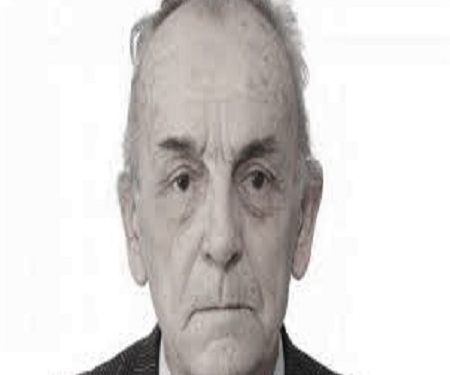
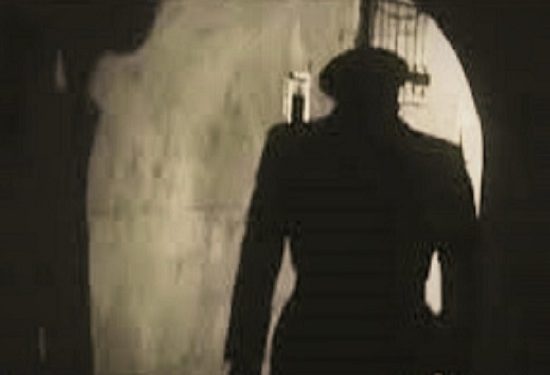
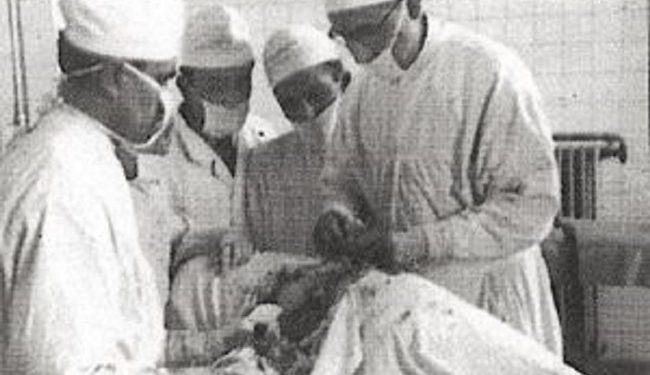
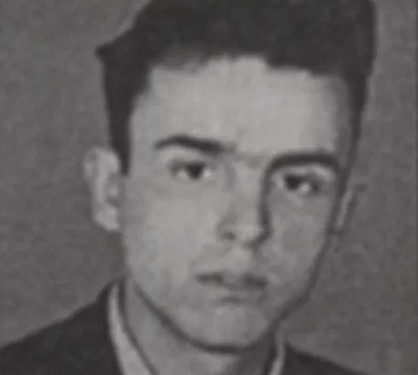
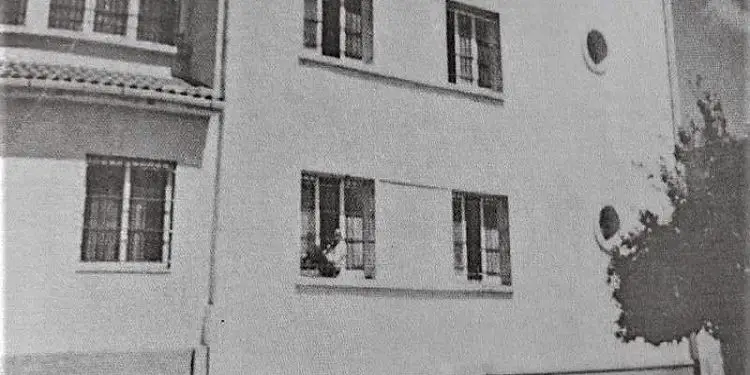
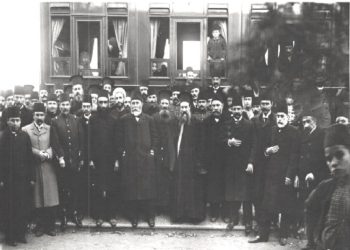
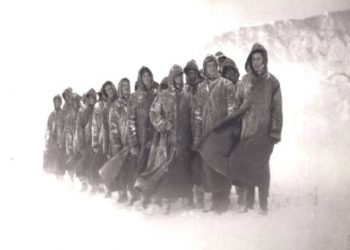

![“When the party secretary told me: ‘Why are you going to the city? Your comrades are harvesting wheat in the [voluntary] action, where the Party and Comrade Enver call them, while you wander about; they are fighting in Vietnam,’ I…”/ Reflections of the writer from Vlora.](https://memorie.al/wp-content/uploads/2025/06/admin-ajax-4-350x250.jpg)


